- Home
- Middle Eastern
- An American Martyr in Persia - The Epic Life and Tragic Death of Howard Baskerville
An American Martyr in Persia - The Epic Life and Tragic Death of Howard Baskerville
By: Reza Aslan
-
Rs 7,645.50
- Rs 8,495.00
- 10%
You save Rs 849.50.
Due to constant currency fluctuation, prices are subject to change with or without notice.
One of NPR's Books We Love in 2022.
In this erudite and piercing biography, best-selling author Reza Aslan proves that one person’s actions can have revolutionary consequences that reverberate the world over.
Little known in America but venerated as a martyr in Iran, Howard Baskerville was a twenty-two-year-old Christian missionary from South Dakota who traveled to Persia (modern-day Iran) in 1907 for a two-year stint teaching English and preaching the gospel. He arrived in the midst of a democratic revolution―the first of its kind in the Middle East―led by a group of brilliant young firebrands committed to transforming their country into a fully self-determining, constitutional monarchy, one with free elections and an independent parliament.
The Persian students Baskerville educated in English in turn educated him about their struggle for democracy, ultimately inspiring him to leave his teaching post and join them in their fight against a tyrannical shah and his British and Russian backers. “The only difference between me and these people is the place of my birth," Baskerville declared, “and that is not a big difference.”
In 1909, Baskerville was killed in battle alongside his students, but his martyrdom spurred on the revolutionaries who succeeded in removing the shah from power, signing a new constitution, and rebuilding parliament in Tehran. To this day, Baskerville’s tomb in the city of Tabriz remains a place of pilgrimage. Every year, thousands of Iranians visit his grave to honor the American who gave his life for Iran.
One of NPR's Books We Love in 2022.
In this erudite and piercing biography, best-selling author Reza Aslan proves that one person’s actions can have revolutionary consequences that reverberate the world over.
Little known in America but venerated as a martyr in Iran, Howard Baskerville was a twenty-two-year-old Christian missionary from South Dakota who traveled to Persia (modern-day Iran) in 1907 for a two-year stint teaching English and preaching the gospel. He arrived in the midst of a democratic revolution―the first of its kind in the Middle East―led by a group of brilliant young firebrands committed to transforming their country into a fully self-determining, constitutional monarchy, one with free elections and an independent parliament.
The Persian students Baskerville educated in English in turn educated him about their struggle for democracy, ultimately inspiring him to leave his teaching post and join them in their fight against a tyrannical shah and his British and Russian backers. “The only difference between me and these people is the place of my birth," Baskerville declared, “and that is not a big difference.”
In 1909, Baskerville was killed in battle alongside his students, but his martyrdom spurred on the revolutionaries who succeeded in removing the shah from power, signing a new constitution, and rebuilding parliament in Tehran. To this day, Baskerville’s tomb in the city of Tabriz remains a place of pilgrimage. Every year, thousands of Iranians visit his grave to honor the American who gave his life for Iran.
How To Win A Cosmic War God Globalization And The End Of War
By: Reza Aslan
Rs 625.50 Rs 695.00 Ex Tax :Rs 625.50
Tablet and Pen: Literary Landscapes from the Modern Middle East Words Without Borders
By: Reza Aslan
Rs 5,755.50 Rs 6,395.00 Ex Tax :Rs 5,755.50
No God But God: The Origins, Evolution and Future of Islam
By: Reza Aslan
Rs 2,236.00 Rs 2,795.00 Ex Tax :Rs 2,236.00
An American Martyr in Persia - The Epic Life and Tragic Death of Howard Baskerville
By: Reza Aslan
Rs 7,645.50 Rs 8,495.00 Ex Tax :Rs 7,645.50
Zubin Mehta: A Musical Journey (An Authorized Biography)
By: VOID - Bakhtiar K. Dadabhoy
Rs 892.50 Rs 1,050.00 Ex Tax :Rs 892.50
Manning Up: How the Rise of Women Has Turned Men into Boys
By: Kay Hymowitz
Rs 845.75 Rs 995.00 Ex Tax :Rs 845.75
The Perfect Gentleman: A Muslim Boy Meets the West - [HB]
By: Imran Ahmad
Rs 1,447.50 Rs 2,895.00 Ex Tax :Rs 1,447.50
Escape From Shudder Mansion (Goosebumps Slappyworld)
By: R.L. Stine
Rs 1,100.75 Rs 1,295.00 Ex Tax :Rs 1,100.75
Swim with the Sharks Without Being Eaten Alive
By: Harvey Mackay
Rs 2,205.75 Rs 2,595.00 Ex Tax :Rs 2,205.75
Zubin Mehta: A Musical Journey (An Authorized Biography)
By: VOID - Bakhtiar K. Dadabhoy
Rs 892.50 Rs 1,050.00 Ex Tax :Rs 892.50
How To Win A Cosmic War God Globalization And The End Of War
By: Reza Aslan
Rs 625.50 Rs 695.00 Ex Tax :Rs 625.50
Tablet and Pen: Literary Landscapes from the Modern Middle East Words Without Borders
By: Reza Aslan
Rs 5,755.50 Rs 6,395.00 Ex Tax :Rs 5,755.50
No God But God: The Origins, Evolution and Future of Islam
By: Reza Aslan
Rs 2,236.00 Rs 2,795.00 Ex Tax :Rs 2,236.00
An American Martyr in Persia - The Epic Life and Tragic Death of Howard Baskerville
By: Reza Aslan
Rs 7,645.50 Rs 8,495.00 Ex Tax :Rs 7,645.50












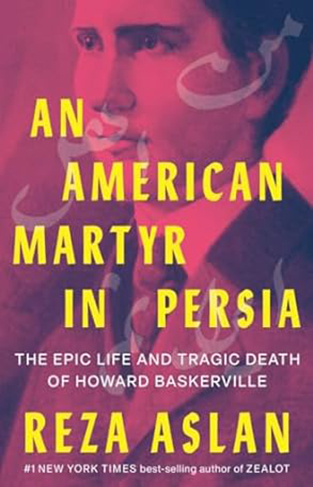



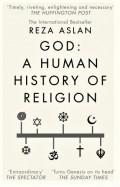
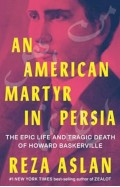

-120x187.jpg?q6)












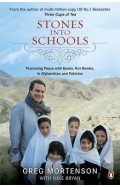
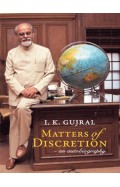
![The Perfect Gentleman: A Muslim Boy Meets the West - [HB]](https://www.libertybooks.com/image/cache/catalog/the-perfect-gentleman-a-muslim-boy-meets-the-west-[hb]-9781455508495-120x187.jpg?q6)
-Paperback-120x187.jpg?q6)
